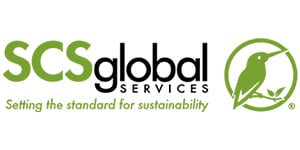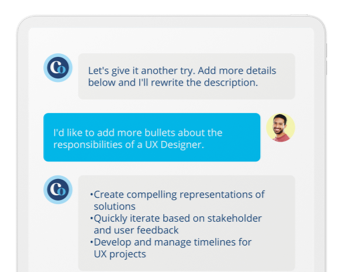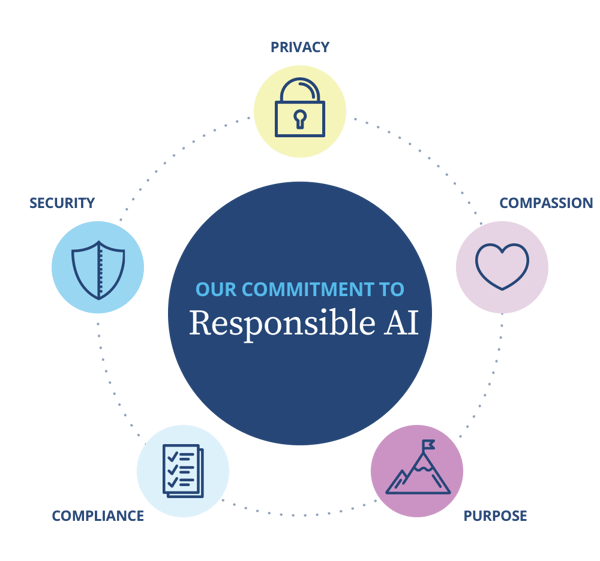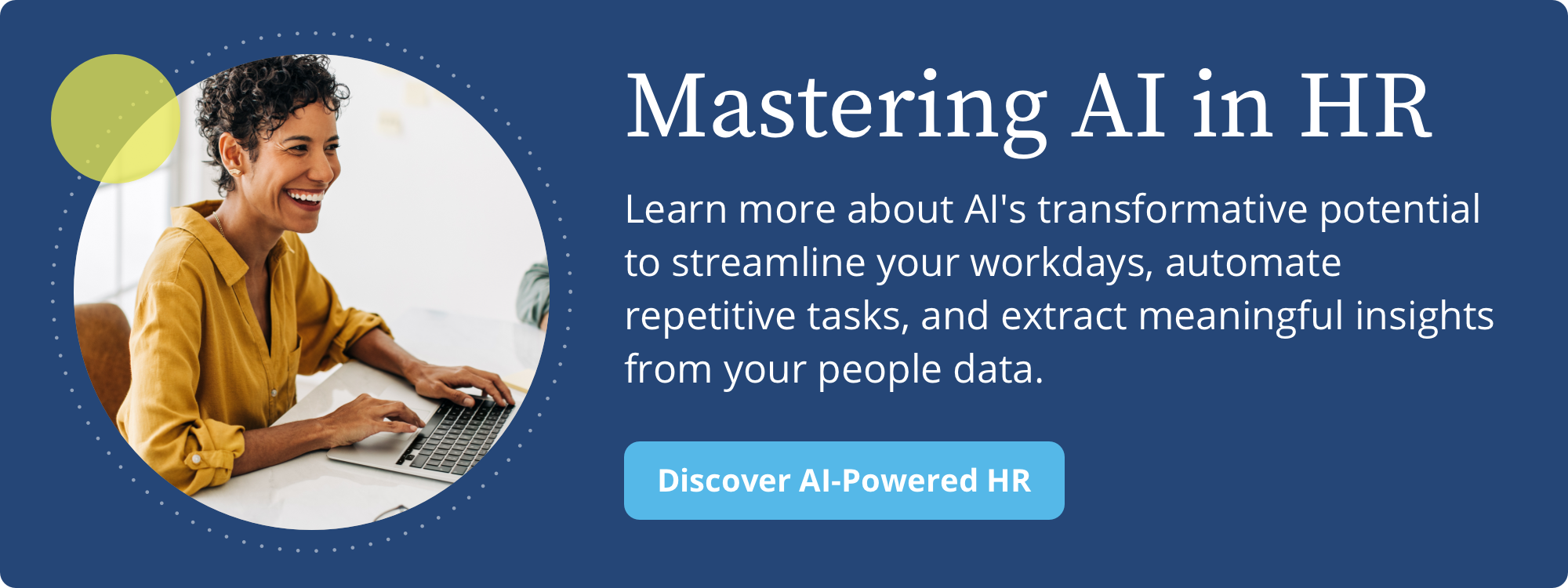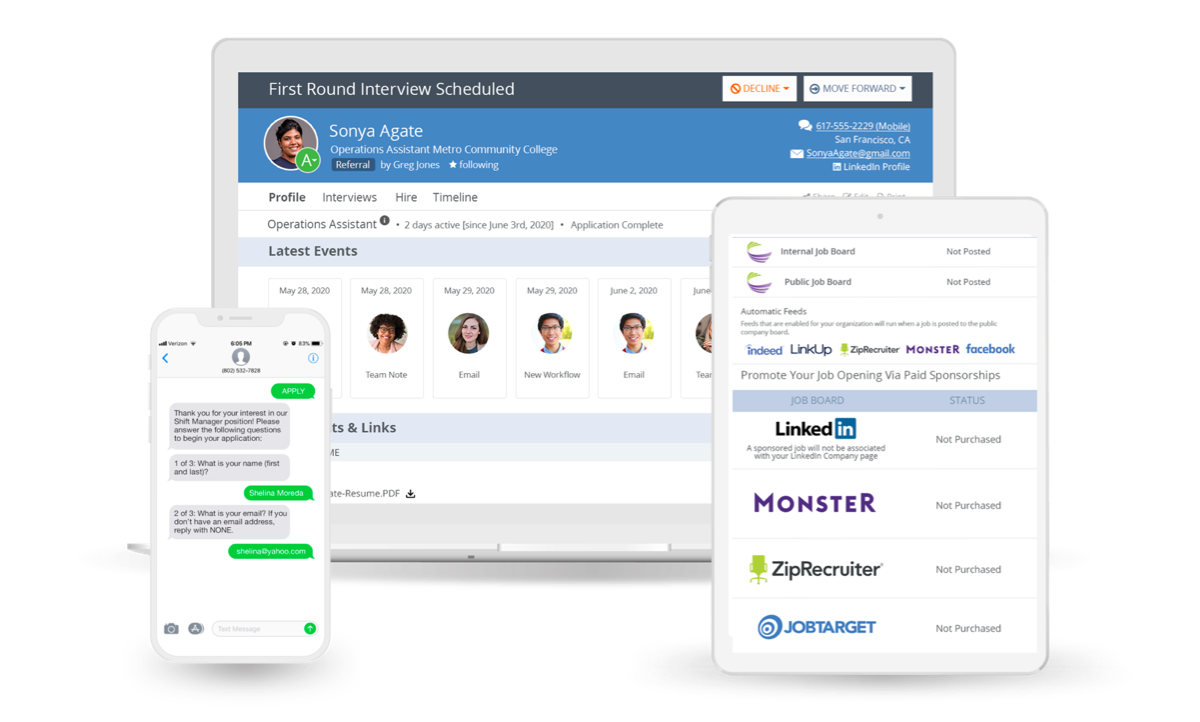Artificial intelligence is on everyone’s mind. And we mean everyone — 62% of Americans believe it will have a major impact on workers over the next 20 years. AI in HR is no different, and 60% of HR professionals say they’re already using AI and automation for recruiting and hiring.
Keep reading for eight ways your talent acquisition team can leverage AI tools in recruiting technology and stick to AI best practices.
1. AI-Driven Resume Screening
Screening resumes takes hours, and it’s susceptible to human error and bias. It’s easy to miss the perfect candidate if you’re sifting through dozens —even hundreds —of resumes every day. It’s no wonder 52% of recruiters say screening candidates is the hardest part of their jobs.
With AI in recruiting, the hours can become seconds, errors disappear, and bias can be eliminated. AI’s advanced algorithms swiftly analyze resumes, identifying key qualifications and matching them with job requirements. The result? A more accurate and objective shortlisting process that ensures the most qualified candidates move forward in the recruitment journey.
2. Chatbots for Initial Interaction
Engaging candidates quickly is key, and AI-powered chatbots are a familiar way to do that from the start of the recruiting process. You can leverage AI chatbots on your career site to direct job seekers to suitable job descriptions, answer questions about the application process, and provide information about company culture.
AI chatbots ensure consistent, helpful interactions whenever candidates visit your site. You can move them along the recruitment funnel without any involvement from your human resources team, enhancing the candidate experience and freeing up valuable time for more strategic tasks.
3. Predictive Analytics for Talent Acquisition
As artificial intelligence advances, we’re getting closer to predicting the future. Predictive analytics analyzes past recruitment patterns, employee turnover rates, and market dynamics to forecast future hiring needs. Your HR team can stay ahead of the curve with this proactive approach —no more reactive recruitment. With predictive analytics, it's all about looking ahead and being prepared.
This AI-driven insight extends to candidates. Predictive analytics can determine the likelihood of a candidate accepting a job offer, which helps your recruiters tailor their strategies. It can even identify those most likely to be successful based on data from your best employees.
Embracing predictive analytics is more than a strategic move — it's a necessity for growth-minded companies. Teams with access to predictive insights are poised to find the right candidates at the right time, enhancing efficiency and elevating the entire talent acquisition process.
4. Diversity and Inclusion Enhancement
AI in hiring can greatly benefit your diversity, equity, inclusion, and belonging (DEIB) commitment. Unconscious biases, often unintentional and deeply ingrained, can influence hiring decisions. AI steps in with an objective lens, focusing solely on skills, qualifications, and experience. 47% of Americans believe AI is better than humans at treating all applicants equally.
AI aids in increasing diversity by widening the talent pool. Its data-driven approach identifies candidates from diverse backgrounds who are often impacted by bias in manual reviews. AI can also help craft job descriptions that are more inclusive, removing gendered and jargon-heavy language that can alienate applicants.
It’s important to be selective with your AI software. The technology is built by people with biases, which means it’s susceptible to bias, too. Choose an ATS provider that’s committed to Responsible AI.
Data Analytics Drives DEIB
The HR team at an insurance company used analytics to discover why they weren’t attracting a diverse candidate pool. They found that candidates of color were applying later in the posting cycle. The company now leaves job posts up for a minimum of two weeks before building candidate lists. As a result, their hiring rate for people of color now exceeds industry benchmarks.
5. Streamlined Onboarding Process
The first days of a new job set the tone for an employee's entire journey at a company —86% of employees agree onboarding is essential for their success. AI helps HR teams ensure those first days and weeks are smooth, efficient, and impactful with a streamlined onboarding process.
AI digitizes administrative tasks like paperwork, accelerating the manual, time-consuming aspects of onboarding. That lets your team focus on helping new hires get familiar with company culture. AI can provide personalized onboarding experiences, tailoring onboarding programs by analyzing employee profiles and preferences.
Your HR team can leverage AI-powered analytics to identify bottlenecks, measure engagement, and constantly collect new hire feedback to monitor and refine their onboarding processes.
6. New Hire Retention Strategies
After 51% of employers reported turnover rates of 15% or more in 2022, 51% of operations and 66% of HR departments named employee retention a top priority. AI can help you address new hire retention by analyzing as many data points as possible —like 30-, 60-, or 90-day reviews, onboarding engagement surveys, and external factors —to identify patterns. This way, your HR team can address concerning trends before they escalate.
AI equips HR to take a proactive, individualized stance in retaining newly hired talent. That results in higher job satisfaction, reduced turnover, and a workforce deeply committed to the organization's success.
7. Nonstop Learning and Development
AI can help you build learning paths for individual employees, which doubles as a retention strategy — investing in employee development can boost retention by as much as 58%. The technology uses employees’ skills, preferences, and career goals to recommend personalized development plans and growth opportunities.
AI helps ensure that employees engage with relevant content aligned with their goals. Unlike traditional one-size-fits-all approaches, tailored learning paths foster a culture of continuous improvement. That benefits your employer brand, which boosts your hiring process by helping you attract more qualified candidates who are interested in learning.
HR also uses AI to pinpoint skill gaps by analyzing data from performance evaluations and project outcomes. This insight helps HR make hiring plans and develop reskilling and upskilling programs that directly address organizational needs.
Employees reward companies that help them grow with loyalty and productivity. As the demand for new skills rises, now is the perfect time to invest in your employees to retain them long-term. Leverage AI to enable a culture of learning that’s closely aligned with individual aspirations and organizational goals and develop a more skilled, engaged, and motivated workforce.
8. Data for Better Decisions
AI in HR dissects large amounts of data far more swiftly and accurately than humans can, giving your team deeper insights into employee performance, engagement, and other key metrics. AI is beneficial for recognizing trends and patterns that manual analysis can miss. For example, AI in recruiting can surface applicants and past candidates who are the best match for a role based on data from your top performers. It can also show you details like where candidates drop off in the recruiting process and which hiring managers lose more new hires than average.
These insights guide strategic decisions that enhance employee satisfaction and boost organizational efficiency. With AI-powered data analytics, you’ll go from making gut-feeling decisions to executing evidence-based strategies. Embrace data-informed decision-making to help your HR team —and your organization —thrive.
Responsible AI Use
It’s important to remember that 71% of people oppose employers using AI to make final hiring decisions. AI in hiring isn’t perfect, and companies are on the hook if their use of AI leads to discriminatory practices. Look for AI recruitment software with an ethics policy or Responsible AI commitment, and be transparent about your AI use.
“Companies that [prioritize inclusivity] and use that as a core principle up front are going to be the winners, and the ones that are not, they’re … gonna have to fix…expensive mistakes.”
- Christie Lindor, Bentley University professor and CEO of DE&I firm Tessi Consulting via HR Brew
When used responsibly, AI for recruiting and hiring enhances your team’s impact —it can’t replace human recruiters or any other HR employee. In fact, AI enables a more human-centered approach, and it can have a transformative effect on efficiency and productivity. With AI taking care of manual tasks and analyzing massive amounts of data, your team can spend more time building connections with candidates and employees.
These eight ways to use artificial intelligence are just the beginning of how we’ll apply it to HR, and we’ll undoubtedly see it continue to evolve even in the near future. Learn more about AI recruitment tools and how teams benefit from artificial intelligence in HR software.
